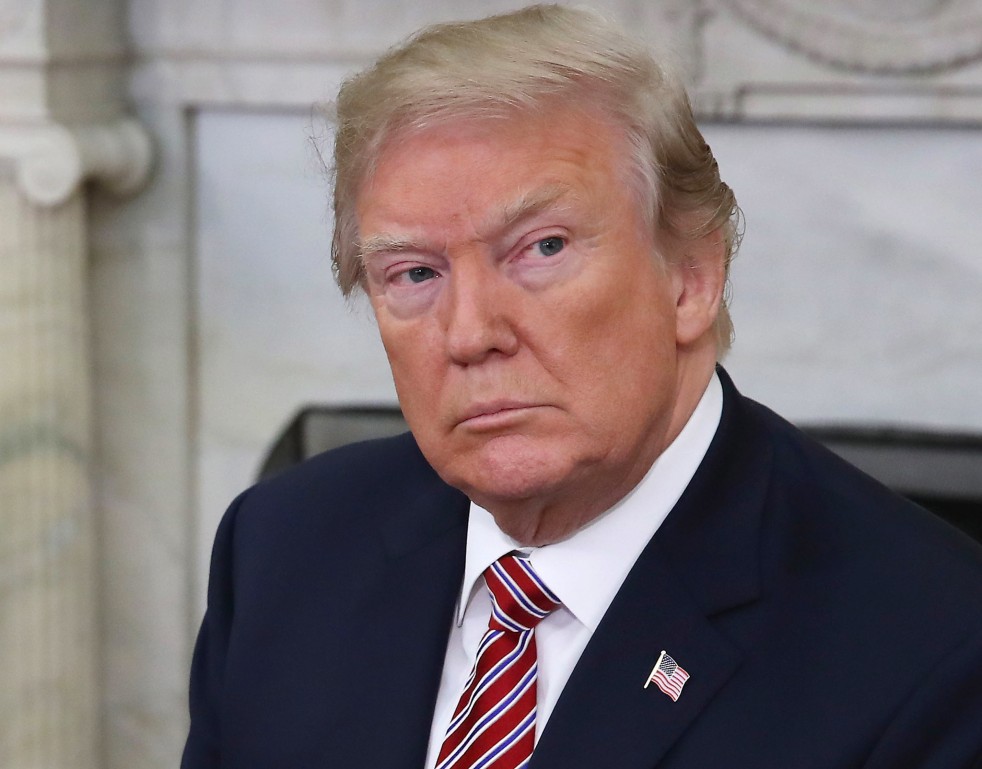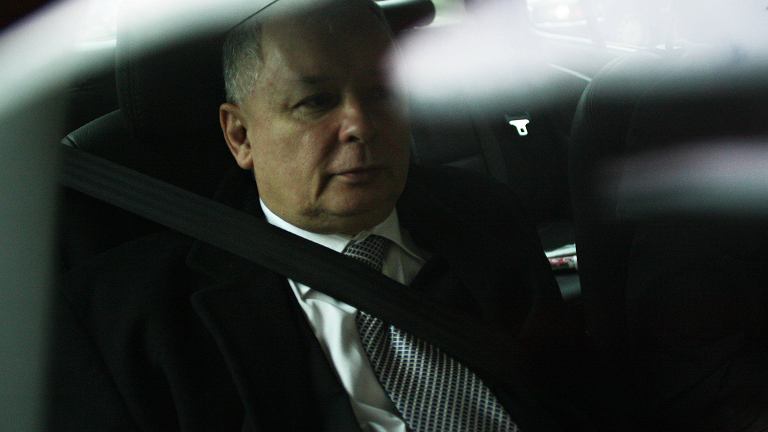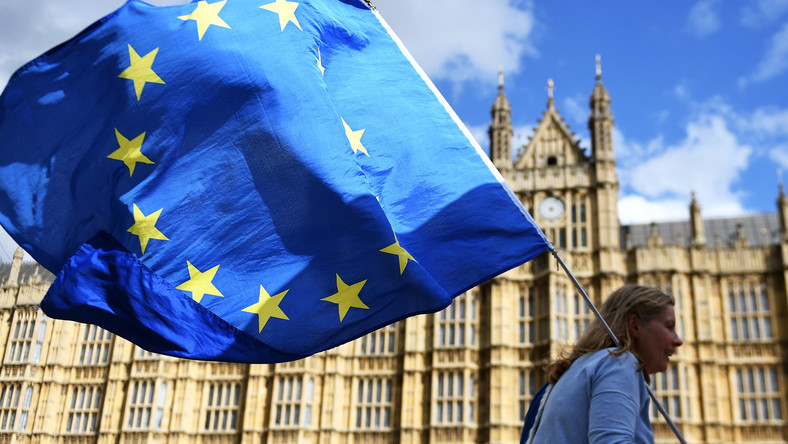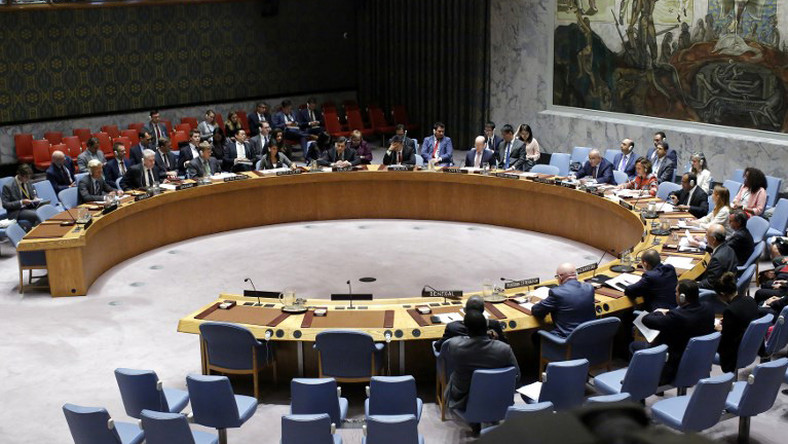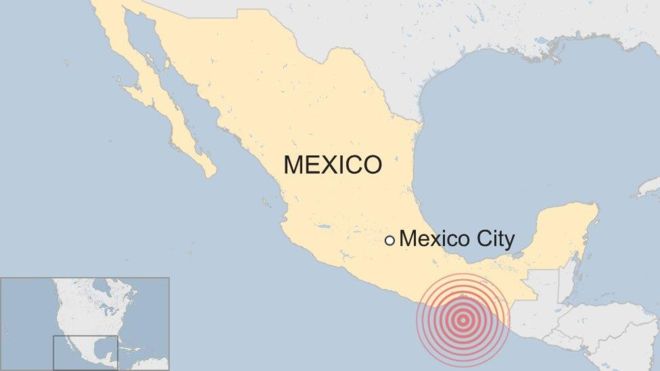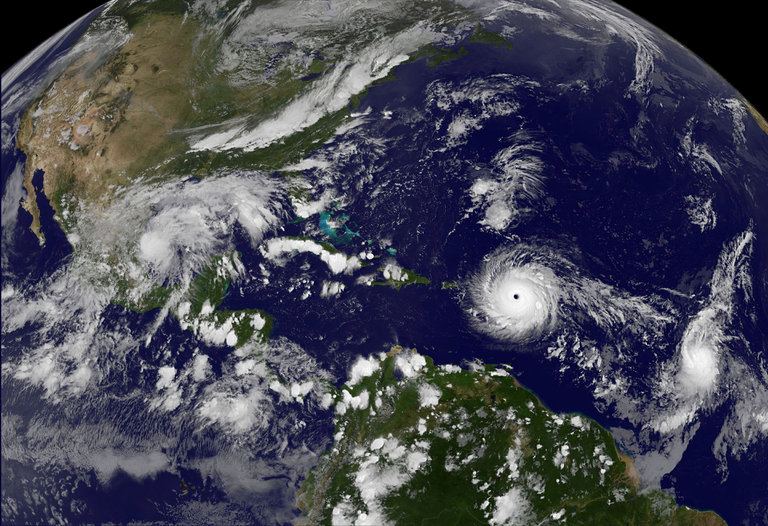The Americans are repeating to the Trump that they are the greatest losers of globalization. And that the rest of the world is still exploiting them. Meanwhile, it is not world trade rules that are unfair to the US, it is unfair to have an economic order that it has established.
Since Donald Trump became the American President, the US has had constant pretensions to the world. International trade rules are supposed to be extremely unfavorable to the United States, which is why the American working class is becoming poorer and the middle class is becoming increasingly narrower. The Chinese and Germans, on the other hand, are gaining by selling their products to the Americans. When you listen to the message that has been drifting from Washington for a year and a half, you will come to the conclusion that the US, a global power and one of the richest countries on earth, is, in fact, the worst affected country in the global economic order. African countries, whose natural resources are being brutally exploited by Western companies, are not affected, as are workers from South-East Asia, who sew cheap clothes for a penny so that young Americans can buy themselves new clothes every week, and developing countries, which, as a result of sudden outflows of capital, every now and then find themselves somewhere in the world in a financial crisis. No, the greatest loser of globalization is, in fact, the United States.
The US has imposed this system on others
This is all the funnier because it was the US that dominated the post-war world order. First, they contributed to the creation of the Breton Woods system, which consisted roughly of the fact that the dollar was convertible into gold and the other currencies into dollars at a fixed exchange rate. The US has therefore ensured that the dollar plays a key role in the Western economy. When Breton Woods ceased to be beneficial to the US and maintaining the gold parity became uncomfortable, it unilaterally withdrew, suspending the exchangeability of the dollar for gold. Nevertheless, the dollar has maintained its position as a global reserve currency to this day, allowing the United States to borrow very cheaply – much more cheaply than countries with similar debt ratios to GDP. The U.S. also secured a majority vote in the International Monetary Fund, which in the post-war period was crucial for the economic expansion of Pax Americana and forced developing countries to adopt the economic principles contained in the Washington Consensus (in exchange for loans). The United States also had an important say in the creation of the World Trade Organisation and in the finalization of the rounds of negotiations that regulated further areas of world trade. The US also maintains several tax havens on its territory, the most famous of which is the state of Delaware. Not to mention that, as a global maritime power, they control the most important trade routes in the Atlantic and the Pacific. So if global economic governance is unfair to the US, it can only be complained about, because it is they who created it. The problem is that world trade rules are not unfair to the US, but the economic order that it has established in its own country is unfair.
Why so much poverty in the USA?
It is enough to look at the basic macroeconomic indicator that shows the country’s level of wealth, i.e. GDP per capita (including purchasing power parity), to see that the global economic order is rather benevolent for the USA. In 2017, the GDP amounted to almost 60 thousand dollars and was much higher than in all the large Western countries. In Germany, GDP per capita was 51 000 US dollars, in Sweden 50 000 US dollars, in Canada 47 000 US dollars, and in Japan 43 000 US dollars. These differences are even more pronounced when one considers the individual states, such as New York and Massachusetts (each with $75,000 per capita). If the Western countries were to become states of the USA, Germany would rank 32nd in terms of GDP per capita. Just over Louisiana, whose enormous social and environmental problems Arlie Hochschild described in her book “Aliens in her own Country”. Sweden would be under Louisiana and France would be 45th between Arizona and South Carolina. The rich Netherlands, however, would be in 27th place, just above Kansas, to whom Thomas Frank devoted the book “What about this Kansas?
So the richest EU countries in terms of national income would be among the poorer US states. And yet there are no reports of the gigantic areas of poverty in Germany or Sweden, nor is there an explosion of social pathologies in the Netherlands. The problem of the USA, therefore, is not the lack of wealth caused by an unfair global order, because there is so much wealth in the USA. The problem of the USA is the pathological economic and social order which it has created itself.
The opening of large scissors
One thing to agree with Donald Trump is that, indeed, the last decades have not been good for working Americans, especially those on lower incomes. Since the 1970s, their incomes have stagnated, but poverty rates have risen sharply. The Nobel Prize winner for Economics, Angus Deaton, presented it perfectly in his book “The Great Escape”. In 1974, the poorest 20% of American households had an average income of US$18,000 per year. In 2010, their real income fell to USD 15,000. In 1974, families in the 20-40 percent range had an average income of 37 thousand dollars, which was exactly the same as in 2010. The poverty rate in 1973 was 10 percent in the USA but in 2010. – The percentage of people under 18 living below the poverty line has risen from 15% to 22% since then, and although the poverty line has not actually been changed since the inflation rate has only been adjusted for it since the 1960s.
Where, then, did all the wealth created in the USA since the 1970s disappear? It reached the richest. Between 1974 and 2010, the average income of the wealthiest 20% of households increased from 120,000 dollars to 187,000 dollars and 5% of households of the wealthiest 5%. – At the end of the 1970s, the wealthiest 1% of American taxpayers had 8% of all income in the U.S., and in 2010 – from the U.S. $130,000 to the U.S. $313,000. – already 19%.
In 2015, the wealthiest 20% of Americans had an average income 8.3% higher than that of their poorest compatriots. Meanwhile, in Germany it is only 4.4 times higher, in the Netherlands it is 4.6 times higher and in Denmark, it is 3.7 times higher. In the same year, 17% of the US population lived below the relative poverty line. It was only 9.5% in Germany, 8% in the Netherlands and 5.5% in Denmark.
The American dream is a dead body
The impoverishment of the American working class and the narrowing of its middle class are therefore due not to the supposedly unfair world economic order for the US, but to the enormous inequalities there that exploded in the 1970s and are still growing. There is no shortage of wealth in the US – there is no fair distribution of income. Worse still, the low level of public services and social security makes these already very large inequalities even more important. Because where there are no decent public services and where they need to be bought out on their own, money becomes particularly important. The lack of a universal public health service means that millions of Americans do not have health insurance, and the minimum wage that has been in place for years weakens the bargaining position of unskilled workers. Through paid higher education, it is impossible for many Americans from less affluent families to obtain a university degree, and social mobility suffers. Rutger Bregman in “Utopia for the Realists” even said that among the Western countries the possibility of fulfilling the American dream is the lowest in… The United States of America.
Trumpet increases inequality
Does Donald Trump want to do anything about this injustice that is oppressing the lower classes of US society? On the contrary, its reforms are going in the opposite direction. His great tax reform has reduced the taxes of the richest. He did not succeed in eliminating Obamacare, so he at least deregulated it, thereby lowering minimum health insurance standards. Since the beginning of its term of office, it has also been trying to overpower the EPA, the environmental agency that ensures that environmental regulations are complied with in the states particularly exploited by mining companies. Thanks to his “efforts”, its activity halved in 2017. Trump has therefore done a classic tail turning of the cat – blaming the US working class for the bad situation throughout the world – but fervently defending the interests of those who are really to blame. What’s worse, many people are getting bogged down in this wasted trick.


